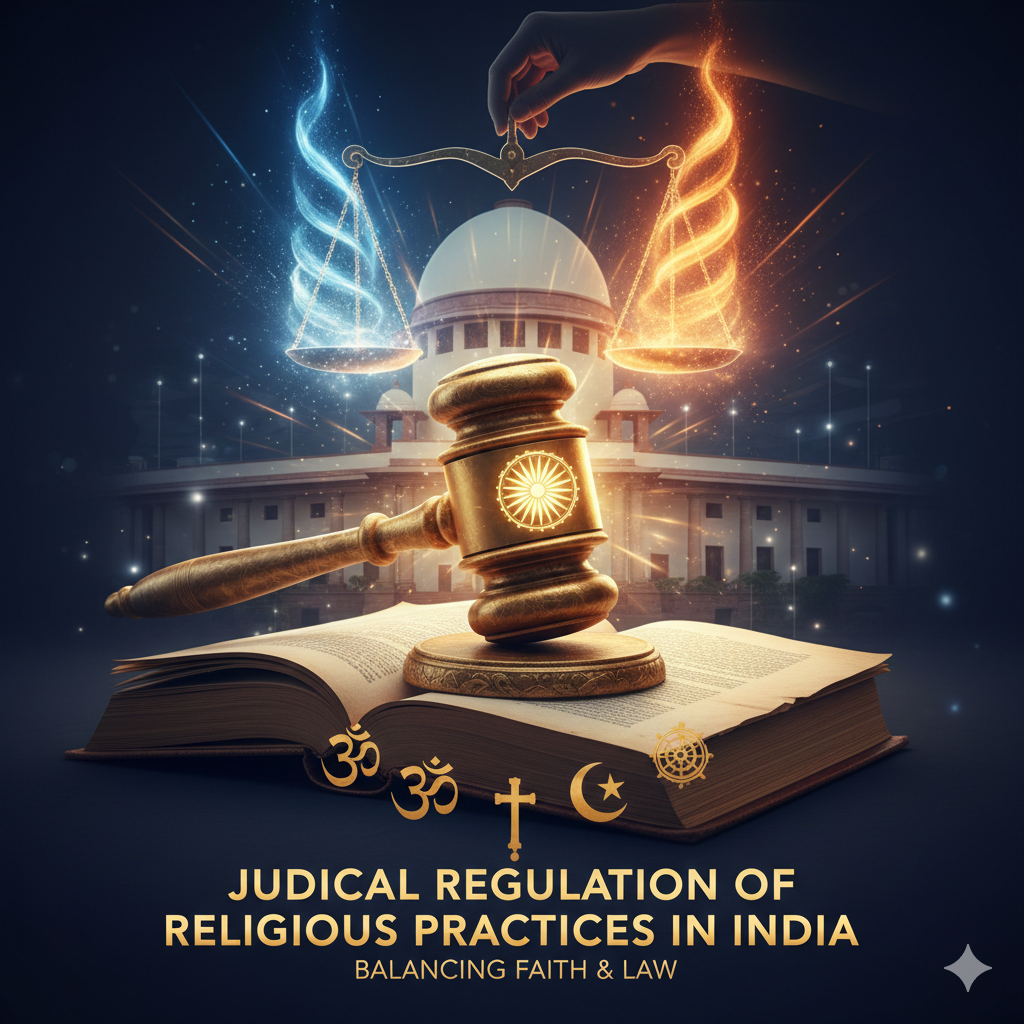Introduction
The Constitution of India is the supreme law of the land, laying the foundation for governance and the rights of citizens. At the heart of this monumental document lies its Preamble, a guiding philosophy that encapsulates the essence of Indian democracy. The Preamble is not just an introduction but a declaration of the fundamental values and aspirations of the nation. It embodies the principles of justice, liberty, equality, and fraternity, ensuring the democratic ethos of India.
The Significance of the Preamble
The Preamble serves as a guiding light for the Constitution, reflecting the intent and vision of its framers. It establishes the basic structure of governance and underscores the aspirations of a sovereign, socialist, secular, and democratic republic. The philosophy enshrined within the Preamble is the backbone of Indian democracy, shaping laws, policies, and governance.
Key Elements of the Preamble and Their Democratic Significance
The philosophy of Indian democracy is deeply embedded in the core elements of the Preamble. Each of these components highlights the values that sustain a democratic nation.
1. We, the People of India – The Essence of Popular Sovereignty
The phrase “We, the People of India” signifies that the ultimate authority in a democracy rests with the people. The Constitution derives its legitimacy from the collective will of the people, emphasizing that governance is by the people, for the people, and of the people. This principle of popular sovereignty ensures that power remains with citizens who exercise their will through democratic means such as elections.
2. Sovereign – India’s Independent and Self-Governing Nature
The term “Sovereign” affirms that India is free from external control, exercising absolute authority in its internal and external affairs. It signifies that the country is independent in making laws, policies, and decisions without interference from any external power. This sovereignty is crucial in upholding democratic governance, where the government functions independently within the framework of constitutional provisions.
3. Socialist – Commitment to Social and Economic Justice
The inclusion of the word “Socialist” in the Preamble, particularly after the 42nd Amendment in 1976, highlights India’s commitment to reducing socio-economic disparities. The state ensures equal distribution of wealth, opportunities, and resources to eliminate class discrimination. Indian democracy, through socialist ideals, promotes inclusive growth, striving for a just society where economic policies serve the collective welfare.
4. Secular – Ensuring Religious Freedom and Equal Treatment
The Preamble asserts India’s secular character, ensuring that the state has no official religion and treats all religions with equal respect. This principle guarantees religious freedom and prohibits discrimination based on faith. Secularism in Indian democracy ensures the harmonious coexistence of diverse religious communities, reinforcing the fundamental right to freedom of religion under Articles 25-28 of the Constitution.
5. Democratic – Rule by the People
The term “Democratic” underlines India’s commitment to representative democracy, where leaders are elected by citizens through universal adult suffrage. Democracy in India ensures participatory governance, upholding the fundamental rights of individuals. The democratic structure functions through free and fair elections, accountability of the government, and active civic participation, reinforcing the people’s control over governance.
6. Republic – Head of State is Elected, Not Hereditary
A republic signifies that the head of state is elected rather than being a monarch. In India, the President, as the constitutional head, is elected indirectly by representatives of the people. This ensures that leadership is based on merit rather than heredity, fostering equal opportunities in governance and strengthening democratic principles.
The Objectives of the Indian Democracy as Reflected in the Preamble
The philosophy of Indian democracy is deeply rooted in the following objectives enshrined in the Preamble:
1. Justice – Social, Economic, and Political
Justice is a fundamental pillar of Indian democracy, ensuring fairness in all spheres of life:
- Social Justice: Promotes equality by eliminating discrimination based on caste, gender, religion, or economic status.
- Economic Justice: Aims to reduce the gap between the rich and the poor by providing equal opportunities for economic growth.
- Political Justice: Guarantees equal political rights, including the right to vote and contest elections, ensuring fair representation in governance.
2. Liberty – Fundamental Freedoms for All Citizens
Liberty, as enshrined in the Preamble, ensures the protection of essential freedoms, including:
- Freedom of Thought and Expression – Right to voice opinions freely.
- Freedom of Belief and Faith – Right to follow any religion or ideology.
- Freedom of Worship – Right to practice, profess, and propagate any religion. Liberty in Indian democracy is safeguarded by the Fundamental Rights (Articles 19-22), ensuring that citizens enjoy autonomy in their personal and public lives.
3. Equality – Equal Status and Opportunity for All
Equality is a cornerstone of democracy, ensuring that no individual faces discrimination. The state guarantees:
- Equal protection of laws (Article 14).
- Abolition of untouchability (Article 17).
- Equality in public employment (Article 16).
- Special provisions for marginalized communities (Articles 15 and 46). By ensuring social and economic equality, Indian democracy promotes inclusive development, allowing every citizen to contribute to the nation’s progress.
4. Fraternity – Promoting National Unity and Integrity
Fraternity ensures a sense of brotherhood among citizens, promoting national unity while respecting diversity. This principle is essential in a multicultural and multi-religious country like India, preventing divisions based on caste, language, and region. Article 51A of the Constitution reinforces the duty of citizens to uphold national unity and harmony.
The Preamble as an Inspirational Guide for Governance
The philosophy embedded in the Preamble acts as a guiding force for policymakers, lawmakers, and judicial interpretations. The Supreme Court, in the Kesavananda Bharati case (1973), affirmed that the Preamble forms part of the Constitution’s basic structure, meaning that its core principles cannot be altered or destroyed.
Additionally, the government’s welfare schemes, socio-economic policies, and legal reforms are deeply influenced by the objectives of the Preamble. For instance:
- Social welfare programs like MGNREGA and Right to Education are aligned with the goal of justice and equality.
- Laws against discrimination uphold the ideals of liberty and fraternity.
- Electoral reforms strengthen the democratic process and accountability.
Challenges in Implementing the Ideals of the Preamble
Despite the strong democratic framework, challenges persist in fully realizing the philosophy of Indian democracy:
- Political Corruption: Undermines democratic values and weakens institutions.
- Social Inequality: Discrimination based on caste, gender, and religion continues to exist.
- Threats to Secularism: Communal conflicts pose challenges to religious harmony.
- Economic Disparities: The gap between rich and poor still remains a concern.
- Misuse of Freedom: While liberty is a fundamental right, it must be exercised responsibly to avoid social unrest.
Conclusion
The Preamble of the Indian Constitution is the philosophical backbone of the country’s democracy. It encapsulates the aspirations of justice, liberty, equality, and fraternity, ensuring a governance structure that serves its people. While India has made remarkable progress in realizing these democratic ideals, continuous efforts are required to overcome challenges and fully embody the principles of the Preamble. Strengthening democratic institutions, ensuring fair governance, and promoting inclusive growth will help India stay true to its constitutional philosophy and vision of a thriving democracy.




